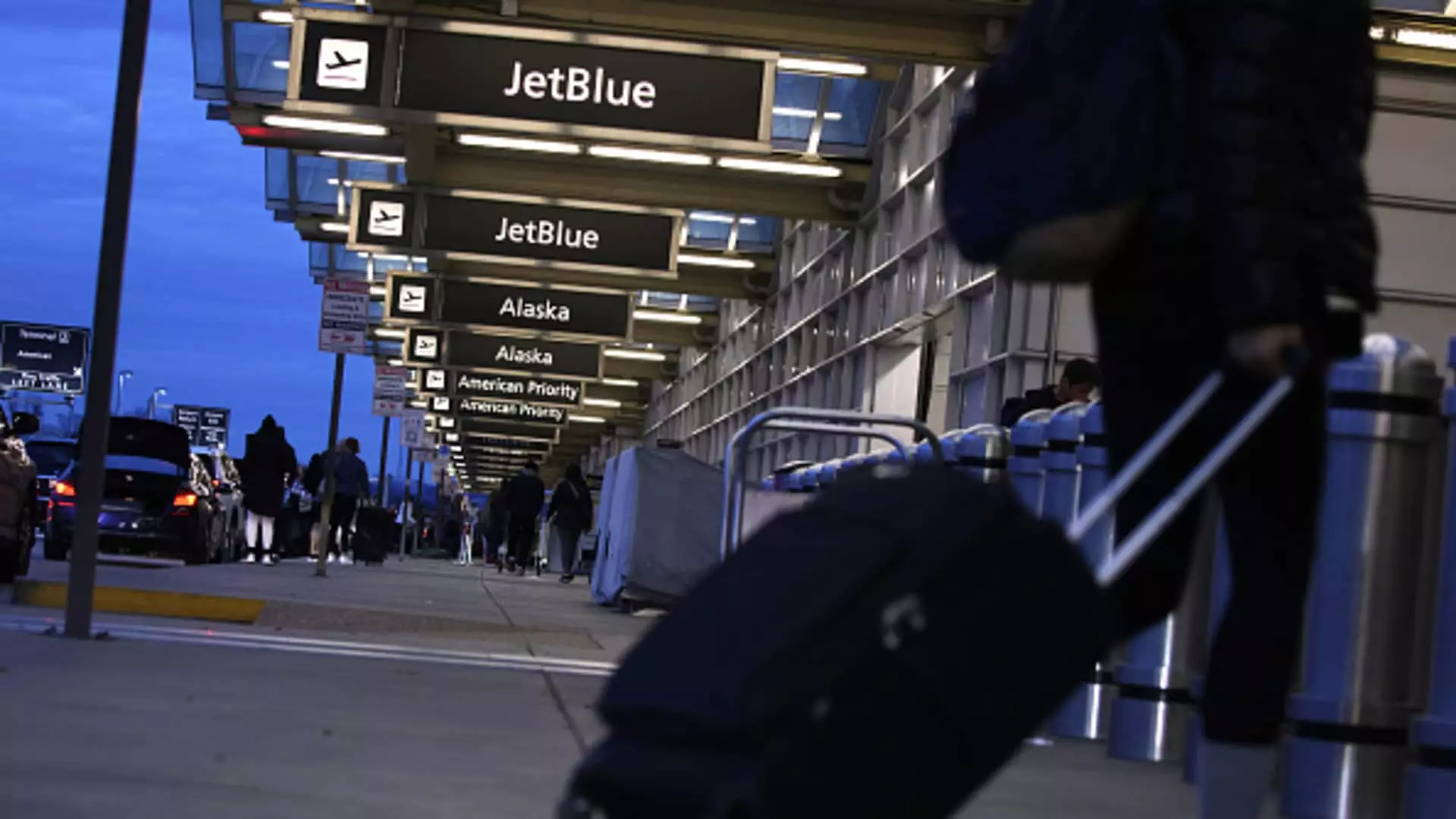In a strategic move to enhance its financial stability, JetBlue Airways has recently announced voluntary early retirement packages aimed at some of its pilots. This decision comes amidst a backdrop of cost-cutting measures the airline is implementing to counteract challenges such as high operational costs and revenue uncertainty. By offering incentives for early retirement, JetBlue is seeking to mitigate expenses associated with its workforce while aiming to bolster its revenue through other initiatives, including the addition of new first-class seating.
JetBlue’s current operational framework faces additional strains due to a significant recall of Pratt & Whitney engines, which has led to the grounding of several aircraft in the fleet. This ongoing issue not only puts pressure on the airline’s ability to serve its routes efficiently but also affects its financial recovery efforts. The early retirement initiative is a response to these broader challenges, allowing the airline to realign its resources more effectively in a marketplace that is still recovering from the pandemic’s impacts.
The voluntary separation bids for eligible pilots will close on February 7, following a communication from the Air Line Pilots Association to its members. According to the agreement, pilots who are 59 years old or older by the end of March will be eligible for this package. The constructed retirement agreement includes compensation for up to 55 hours of their hourly wage that could extend until their mandatory retirement age of 65, or up to 18 months post-separation, whichever comes first. This package is designed to provide a financial cushion for pilots who opt for retirement, promoting a smoother transition away from the cockpit.
Financial Implications for Pilots
Comparative figures provided in the announcement illustrate the monetary benefits that pilots stand to gain from this program. For instance, an Airbus A320 captain with 12 years of experience could receive a payout exceeding $416,000, whereas a less experienced Embraer E190 captain might see a payout of around $160,000. These figures underscore the significant financial motivations behind the early retirement offer, highlighting the potential benefits for pilots nearing their retirement age.
Industry Context and Future Outlook
JetBlue’s measure to offer early retirement comes as part of a larger trend within the airline industry, where carriers are increasingly looking for ways to adapt to a changing economic landscape. With fluctuating fuel prices, labor shortages, and evolving consumer demands post-pandemic, airlines are reassessing their operational strategies. JetBlue’s decisions will also be closely monitored as they will be announcing quarterly results soon, and how these measures affect their performance could set a precedent for similar strategies across the industry.
JetBlue Airways’ voluntary early retirement packages represent a tactical response to both internal and external pressures faced by the airline. By allowing certain pilots to retire early, JetBlue is not only looking to streamline its operational costs but is also positioning itself to enhance its service offerings. The success of this initiative, along with accompanying financial strategies, will ultimately shape the airline’s future trajectory in a rapidly evolving market.

